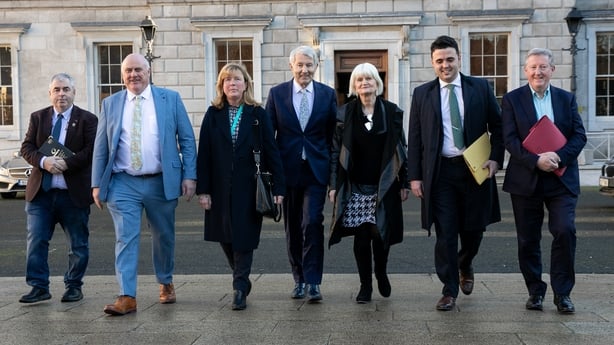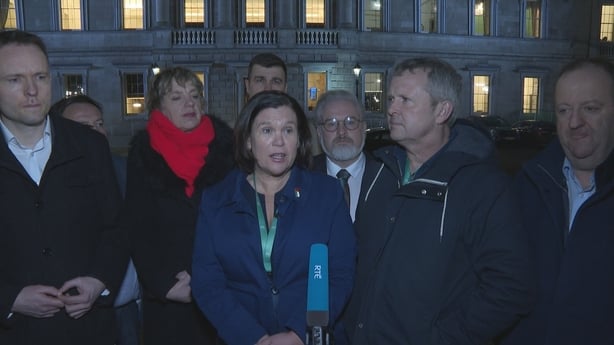There was fury, hurried and heated letter writing and claims that the tenets underpinning democracy were crumbling.
Then close to the end of a seemingly cordial meeting on Wednesday night, the typically mild-mannered Government Chief Mary Butler figuratively turned the table upside down and called a late vote.
The Government won but their opponents decried the move saying a solemn pledge to secure their agreement had been cast aside.
Yes, the Dáil speaking row served up another week of relentless anger and drama.
Amid all the high-pitched clamour there were moments of clarity.
Cue Richard Boyd Barrett who succinctly summed up the Opposition's grievance over that plan to create new speaking time for Independent TDs supporting the Government, along with its own backbenchers.
He told the Dáil that those TDs who back the Government never ask the hard questions.
It is difficult to disagree.
When Michael Lowry previously supported governments, the questions were often constituency focused and aimed at progressing particular projects.
While fully fledged Government TDs can at times be meek when questioning their party leaders and frequently these contributions are sprinkled with cloying words of praise.
It is all very different from the robust exchanges that mark the questioning approach of the Opposition parties and groups.
And that lies at the heart of this dispute.
Why then would a government bother fighting so strenuously for such a slot given the devastating effect the row is having on the functioning of the Oireachtas?
It is because the Regional Independents know the value of putting a question to the Taoiseach in a busy Dáil chamber, and the Government relies on the votes of these TDs.
Asking a question from centre stage in the grand political theatre plays well in the constituency.
Its significance is further boosted on both local and social media.
The Government backbenchers will reap rewards from this new arrangement too, but one suspects their involvement was primarily about providing political cover to deliver this key demand for the Michael Lowry-led Regional Independent TDs.
It was not always this way though.

Decades ago, a long since departed Sunday newspaper would annually calculate the minutes each TD spoke in the Dáil chamber.
Those at the bottom of the league table would be featured large on the newspaper's front page.
But the caustic criticism did not always result in political damage.
Indeed, deputies like the reticent late Fianna Fáil Kerry TD John O'Leary would enjoy long distinguished careers without displaying much enthusiasm for the publicly spoken word.
That approach has become increasingly rare.
Although the attendances in the Dáil chamber are often sparse, TDs know the political capital that can be derived from raising constituency issues in this national forum.
It is a precious electoral commodity that the Regional TDs were not willing to forgo.
But this is not without consequences from the new Government.

For the remainder of this Dáil, the Opposition will continually manacle it to the Moriarty Tribunal findings against Michael Lowry, findings that he has always contested.
Furthermore, it has all led to a profound souring of the atmosphere within Leinster House to the point where normal political business is stalled.
The essential Oireachtas Committees are not up and running yet, thus new legislation cannot be progressed.
The decision by the Opposition to bow out of the pairing agreement will have an impact too.
It means that TDs from outside Government will not abstain in votes when a minister is away on business.
That will inevitably see ministers recalled early from overseas trade missions and meetings with their EU counterparts.
All this is unfolding at a key moment historically.
Indeed, international collaboration has taken on a heightened importance given the pervasive geopolitical turbulence and a looming trade war.
Ultimately those factors may usher an end to this domestic spat.
However, a lingering deep-seated hostility between the Government and Opposition parties is likely to remain.







